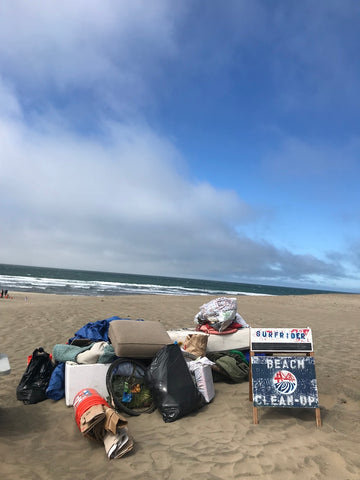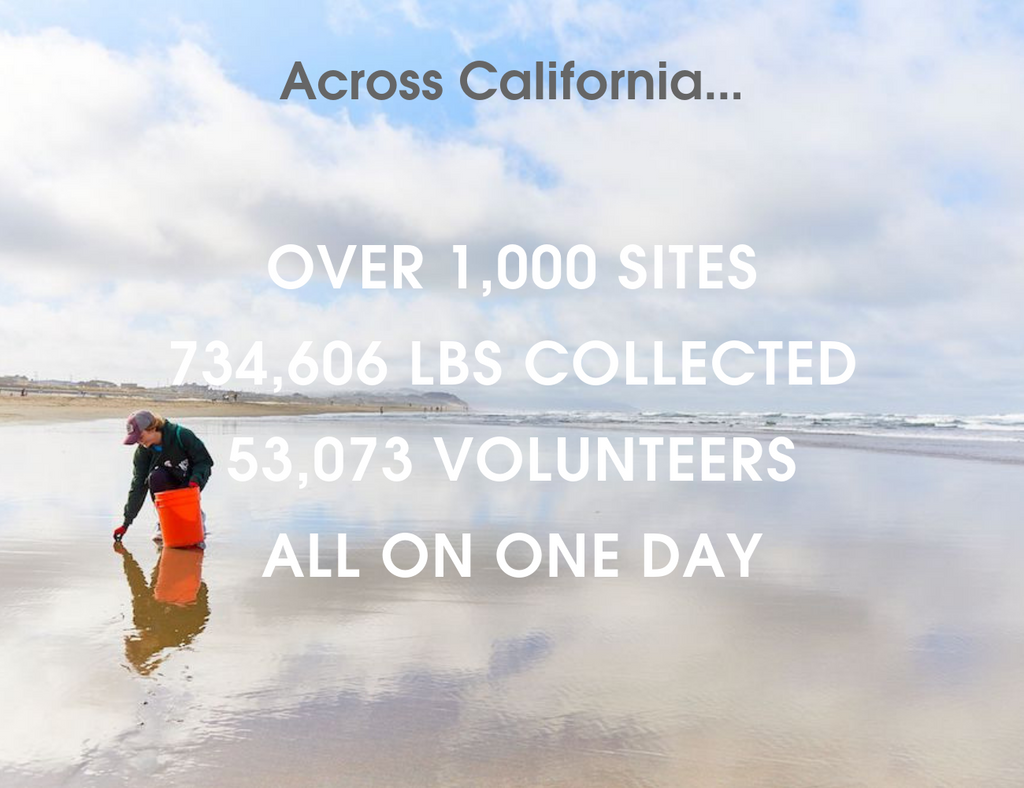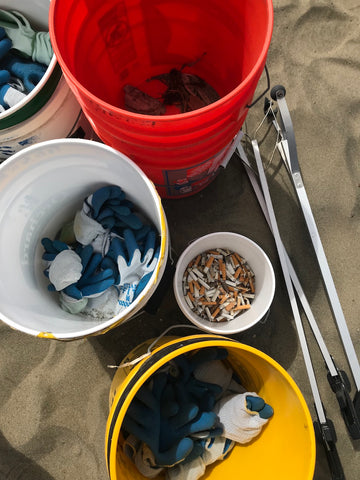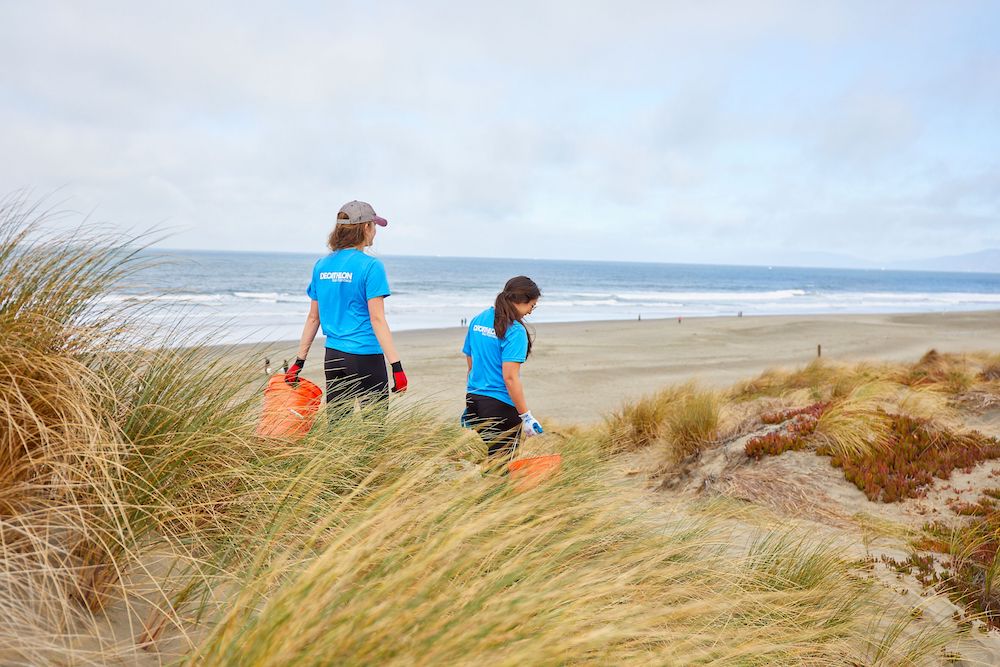World Cleanup Day, otherwise known on the west coast as "California Coastal Cleanup Day," is the largest garbage collection event of the year.
Given that the outdoors is a host to many of our favorite activities, we believe in the conservation and preservation of our beautiful planet. California famously houses many of the world's most cherished beaches, making it an appealing destination for all. That's why we volunteered with Surfrider Foundation to help manage one of many beach cleanups happening in our own backyard, Ocean Beach. At our site alone (Ocean Beach at Noriega), we saw roughly 100 volunteers come together to collect items ranging from cigarette butts, to loose plastics, to miscellaneous items like a mattress and old drapes.
Along the coast, tens of thousands of volunteers convened to prevent ocean pollution and keep our habitats in their most natural state, free of litter and other pollutants that can harm wildlife. Together, volunteers worked to keep nothing on the beach but sand, in effort to keep water clean and prohibit plastics and other trash from entering our waterways.
Here's what we learned:

2) Single-use plastics comprised 75% of what was picked up this year, including plastic wrappers and grocery bags. These never completely biodegrade, can kill wildlife and leak harmful toxins into the environment.
3) 80% of California trash originates on land, so this day is mostly about preventing ocean-bound trash from actually reaching the ocean.
4) Cigarettes and cigarette butts are one of the most commonly picked up items, and are extremely harmful and disruptive to ocean ecosystems. Surfrider Foundation has a campaign around proper disposal of cigarette butts, and you can contribute to the cause or learn more about better disposal here.

How to contribute:
1) Volunteer for future beach cleanups, such as those coordinated by the Surfrider 
2) Upgrade your license plate to the Whale Tail, which is a source of funding for the cleanup and other coastal health initiatives.
3) Learn best practices when roaming around nature, like not picking indigenous plants on hikes, staying on paths, properly disposing of trash, and making a habit to recycle or compost regularly.
4) Pledge to incorporate reusable items as much as possible in your daily routine and reduce your eco-footprint. At Decathlon, we are continuously seeking ways to adapt the best practices, starting with a pledge to reduce packaging - for example, no shoe boxes or unnecessary plastic when it isn't needed.
5) The world's largest ocean cleanup just launched, and is making its way to the Pacific Ocean garbage patch. Learn more here.
Beach and bluffs photos taken by David Martinez Studio.






